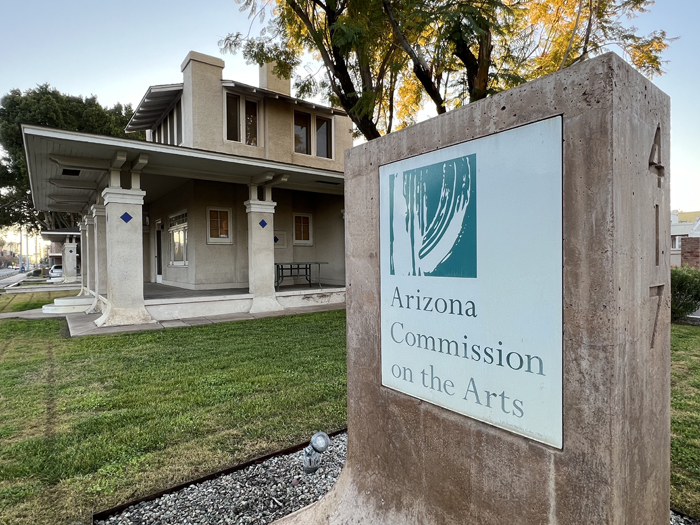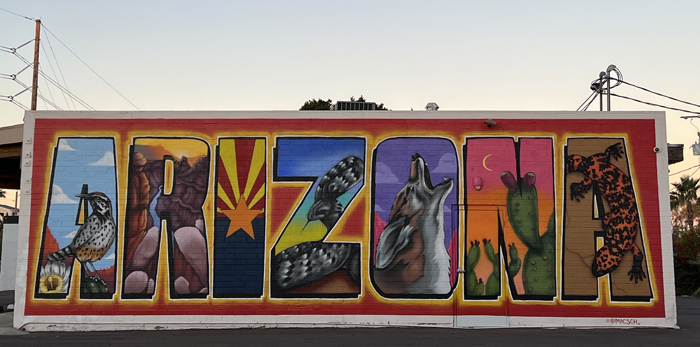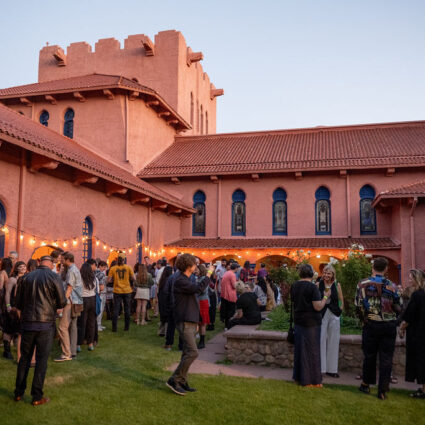Arizona Commission on the Arts’ new director says its governing board lacks geographic diversity, which goes against Arizona statute. It’s not the only violation of state law involving the agency.

PHOENIX—A few days before New Year’s Eve 2022, the Arizona Commission on the Arts announced the appointment of Jacky Alling, a nonprofit professional with experience in philanthropy and the arts, to serve as interim executive director for the state arts agency. She’ll be working with agency staff and the board of commissioners on strategic planning, re-engaging with constituents, and participating in the search for a new executive director, according to longtime board chair Mark Feldman.
In late December, weeks before her official start date (slated for today, January 9, 2023), Alling expressed concern about the makeup of the ACA board, whose members are appointed by the governor.
“The enabling statute requires that our commission represent the geography of the state,” Alling tells Southwest Contemporary.
According to state law, the commission’s board members “shall be selected so as to insure geographic representation to all areas of the state.” The agency’s own policy manual, last updated in July 2022, affirms that this statute governs the group’s composition.
But the current board doesn’t meet that requirement.

That’s because every member is based in Maricopa County (home to metropolitan Phoenix), according to contact information obtained by Southwest Contemporary through a public records request.
Former ACA executive director Anne L’Ecuyer, who was abruptly fired by the board last October after less than a year in the job, has also expressed concerns about the board’s configuration.
“Right now, the commission represents the state of Maricopa [County],” according to L’Ecuyer, who offered a possible solution when speaking with SWC in mid-November.
“One way to think of it would be by district or county, or formalizing the requirements to assure tribal and rural representation,” L’Ecuyer says.
For at least one existing board member, the heavy Maricopa County focus isn’t an issue. During a December 2022 ad hoc transition committee meeting, for which the agency provided an audio live stream on its website, an unidentified commissioner suggested that membership be tied to county population.
It will be up to Katie Hobbs, who narrowly defeated controversial gubernatorial candidate Kari Lake last November, to make certain that the board’s membership reflects the entire state. Hobbs, who replaces former governor Doug Ducey, will have plenty of opportunities: terms for four commissioners expire at the end of June 2023, and several more are serving despite the fact that their terms expired in June 2022.
The lack of geographical diversity isn’t the only state law the ACA is breaching.
Chairman Feldman’s term expired on June 30, 2021 (yes, 2021), according to a roster listing thirteen members, which agency staff provided to board members for the commission’s quarterly meeting in December. By statute, the group should number fifteen.
“I became the chair in 2011,” recalls Feldman, who notes that’s the same year the nonprofit Arizona Town Hall convened stakeholders on arts and culture, “but now it’s gone on for quite some time, so I’m on an expired term.”
“We have two unfilled seats and five people with expired terms, and that’s an issue,” says Alling, who adds, “Right now, our representation is all in Maricopa County. We need to address that at every level, not just the commissioners.”
Southwest Contemporary called the Governor’s Office of Boards and Commissions but was met with a recording saying the voicemail inbox was full. As of this writing, that office hadn’t responded to written requests for information and comment.
For artists and cultural organizations assuming that board-related issues aren’t all that relevant, former executive director L’Ecuyer offers a counternarrative from her time as ACA leader.
She alleges that ACA board members modified the recommended dollar amounts of Creative Capacity Grant awards after learning that Arizona more than doubled its arts funding to $5 million in the last state budget. The problem is, she says, the board didn’t make those changes through a public process.
“The commission has a real lack of transparency,” says L’Ecuyer.



